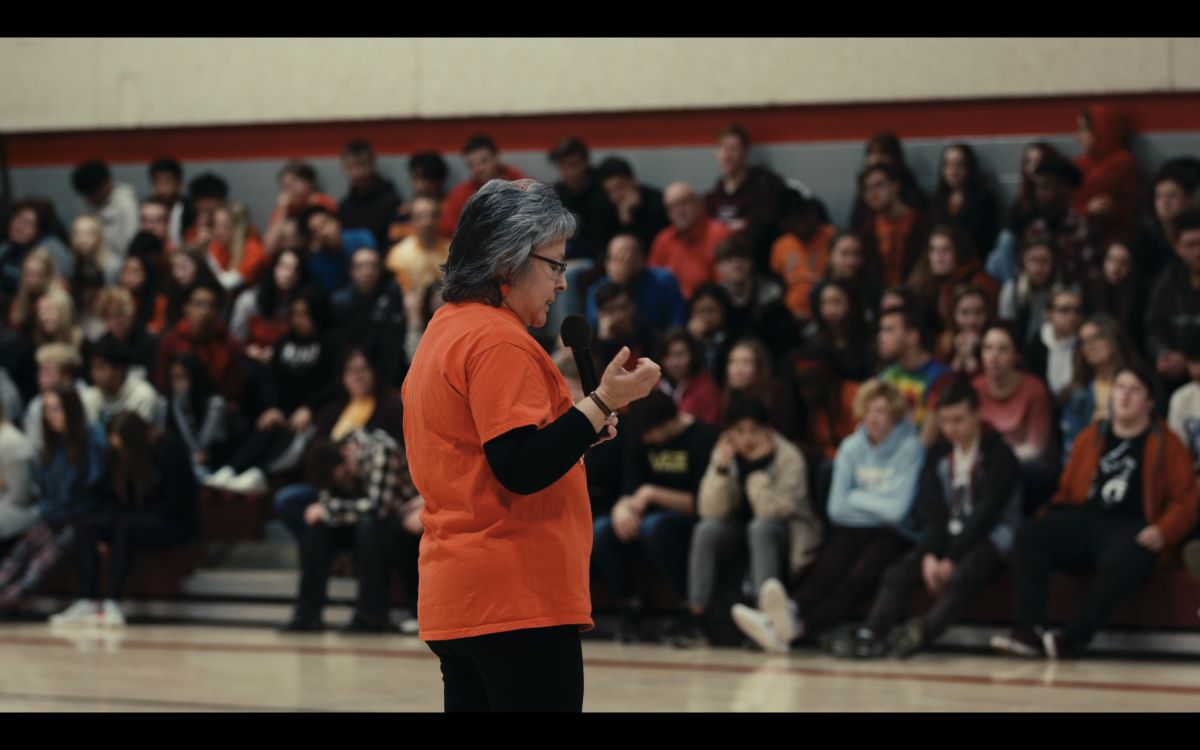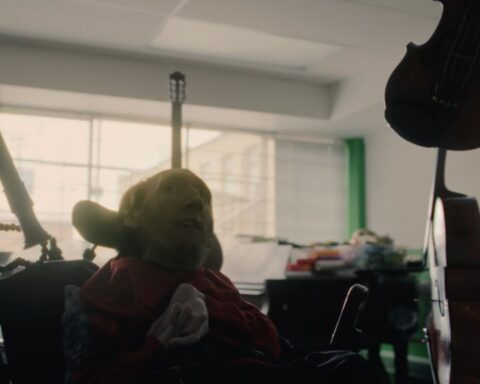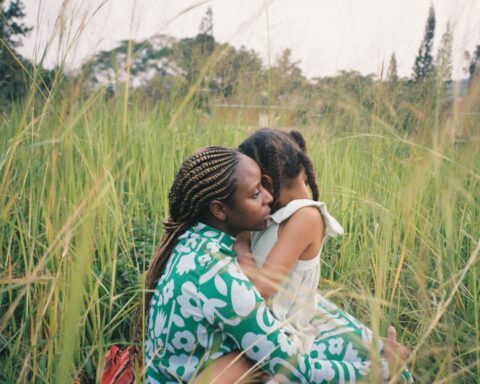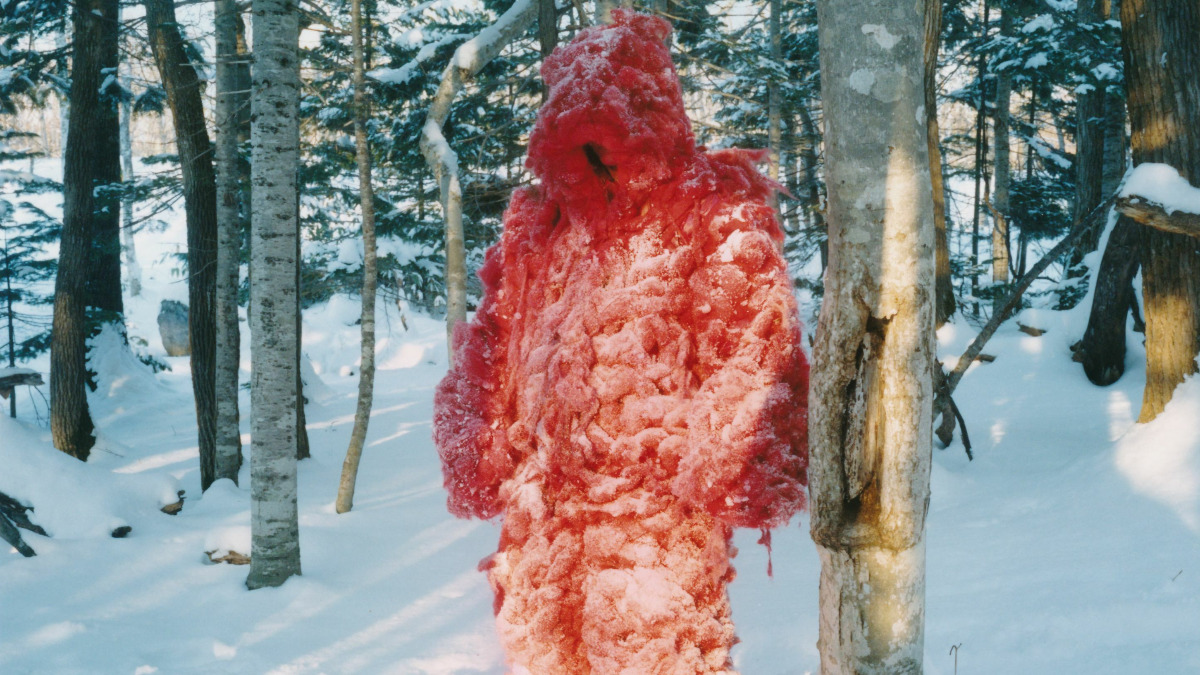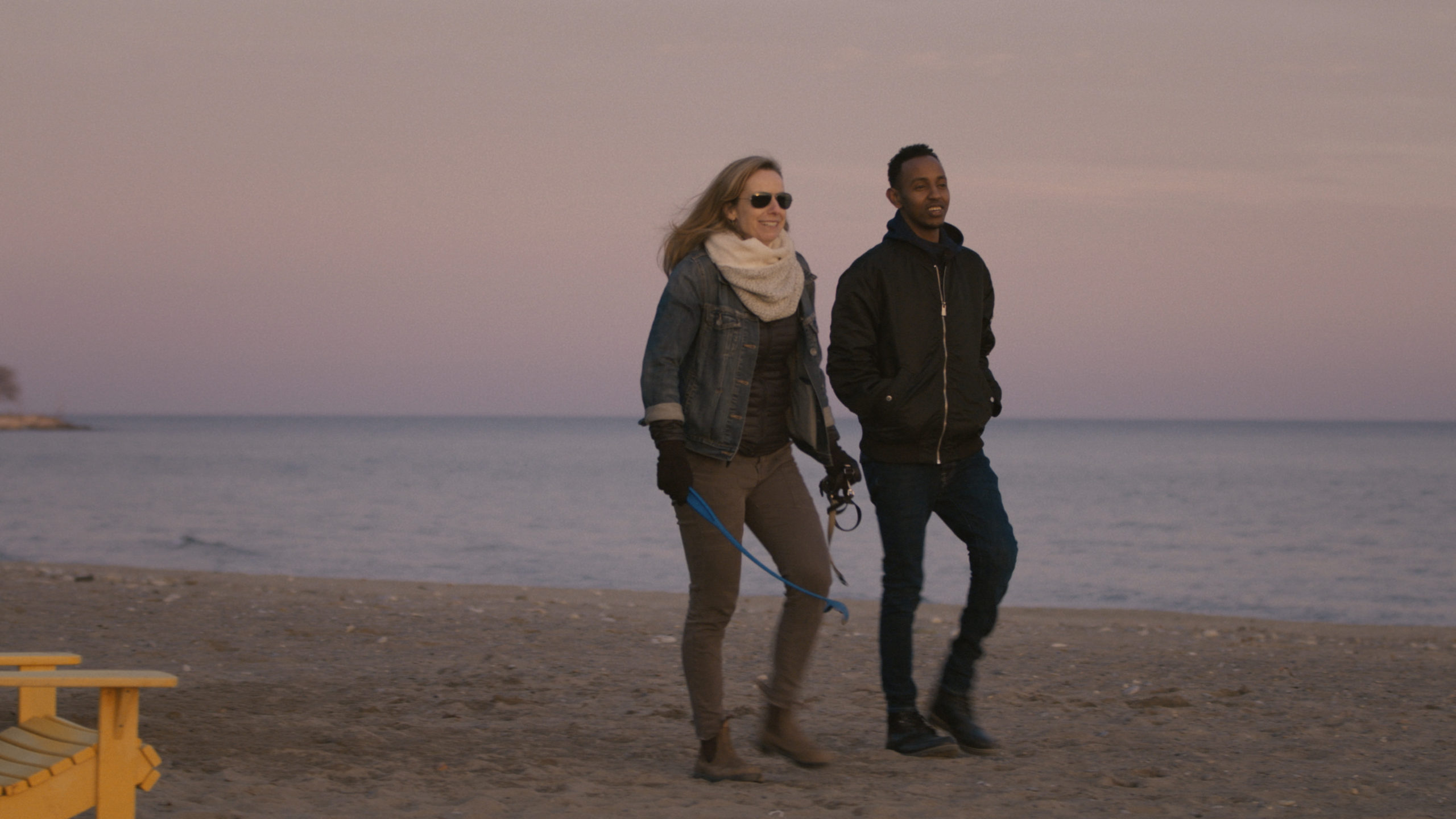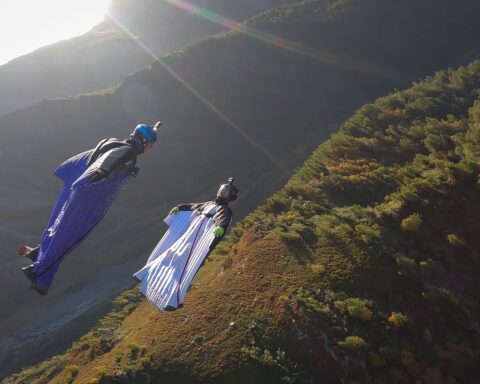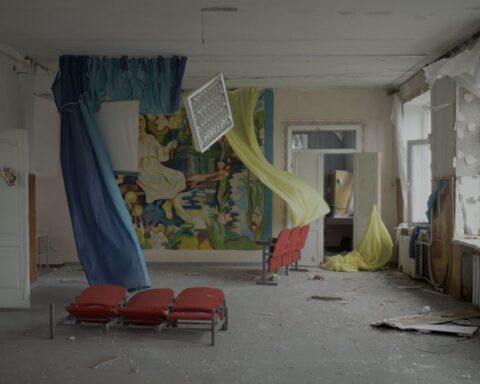“We are all connected” is not just some hokey phrase spoken stoically by Indigenous people; it’s a fact.
In Returning Home (2021), Secwepemc filmmaker Sean Stiller interweaves the struggles and displacement of residential school students with the dispossession of the local wild salmon. “This film is less about advocating for a cause and more about getting people to see that worldview and to understand it a bit,” explained Stiller. “It’s about what you can feel for even a couple of moments, that relationship to the land, why that community and that family would feel so emotional about the salmon run being non-existent. It’s not just recreation; it’s a part of who they are. If that can just be felt, for me that’s the gold standard.”
Returning Home focuses on the family and community of Phyllis Jack-Webstad, the residential school survivor who founded Orange Shirt Day, held every September 30th, to honour the lives of residential school students who survived and those who didn’t make it back home. In Returning Home, we are introduced to her as she travels across Canada, sharing her story with young students in auditoriums about how attending St. Joseph’s Mission Indian Residential School affected her growing up and into adulthood. Her story is infamous and widely known: In preparation for her first day of school, her grandmother took her shopping for a new outfit, which included a shiny orange shirt. When she arrived on her first day at school, they stripped everything away, including the orange shirt, and never gave it back to her. For her it was a heartbreaking realization of the callousness and trauma that she would begin to endure there, while instilling a sense of worthlessness and loneliness in her formative years. She still gets teary when she tells this story.
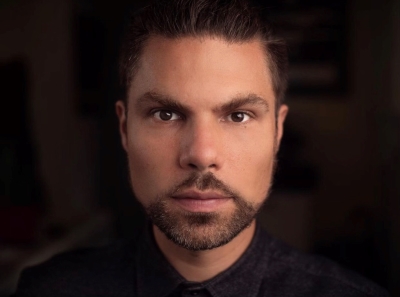
In the film, Jack-Webstad’s story and that of her family are tied to the decline of the wild salmon population along the Upper Fraser River in Secwepemc territory. Thanks to intergenerational knowledge, they know that the health of the community is directly tied to the health of the wild salmon population. Through interviews with members of the Secwepemc community, we see how vast and intimate their knowledge of the land and the salmon is. We are shown how much they respect the salmon’s journey up the Fraser River, while depending on them to be a healthy population not just for eating, but for social and cultural activities as well. They also share their healing journey from the trauma they endured at the schools. “Just let the majority of them go home. If they are having a hard time going upstream, let the path be clear for them,” says Agness Jack, Phyllis’ aunt in a prayer with a seemingly double meaning while looking out onto the river.
“Canadian Geographic approached me to do their first documentary film,” said Stiller. “They had been facilitating some of Phyllis’ reconciliation work for a while and asked if the film could be woven in around that theme. It just hit me one day during the research process that the salmon have basically been colonized too.
“I was doing a lot of research on the early years of the fishing and canning industry in BC, which is really unique. We touched on that in the film, about how allocating reserves and land for the western fishing industry was a completely woven process. People are being displaced at the exact same time the salmon are being displaced. Their waterways and their tributaries are being polluted and overfished.”
The documentary has a cinematic feel to it because of the skillful editing of the visuals and music and the weaving together of the two stories. The cinematography feels like a meditation on the landscape of British Columbia’s interior. Stiller captures stunning footage of Jack-Webstad’s family working on the river and the land with the mountains in the backdrop, accompanied by a poignant soundtrack composed by Anishinaabe violinist Melody McKiver. He often returns to a beautiful shot of the fish swimming in the river. The music draws out an added layer of emotion when community members are sharing their survivor stories, healing journeys, and expertise on the land and salmon.
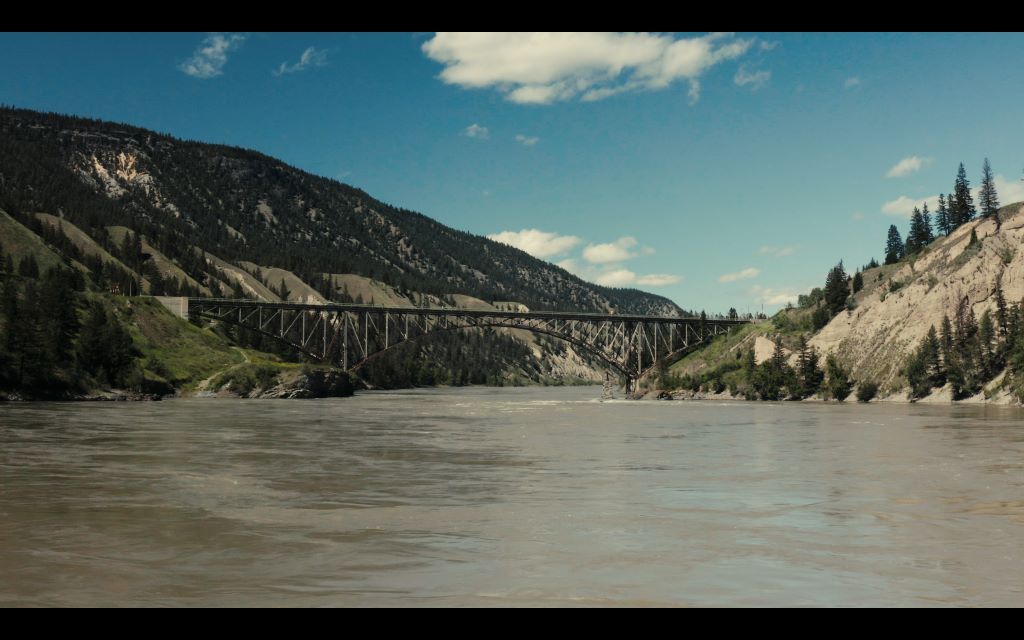
Sitting in the director’s chair, Stiller was able to bring an insider’s lens to the film. He met Phyllis Jack-Webstad while completing his thesis in a film program at Toronto Metropolitan University. “I’m sort of self-taught and I came into it a little later in life. I bought my first camera in my late 20s and began working on little projects for myself. Then I eventually moved to Toronto,” he said. It was then that he committed to a career in film. Wanting to keep his connections out west, he decided to work on his thesis in British Columbia. “I began thinking a little bit more about the kind of stories I want to tell and why I want to tell them. During the time I was working on my thesis, I decided to go back to my territory. That’s when Phyllis and I met.”
When they first met, it was just casual conversations at the gas station that Phyllis managed in her reserve community. Eventually Phyllis asked him about his work in film and then invited him to film her family at their fishing camp. “She was just observing me and what I was up to. She said that her family does a salmon fish camp every year out in her band’s territory, which was near mine, and asked me to come. I stayed there for a week and ended up doing a ton of filming, which actually became my thesis project,” he said.
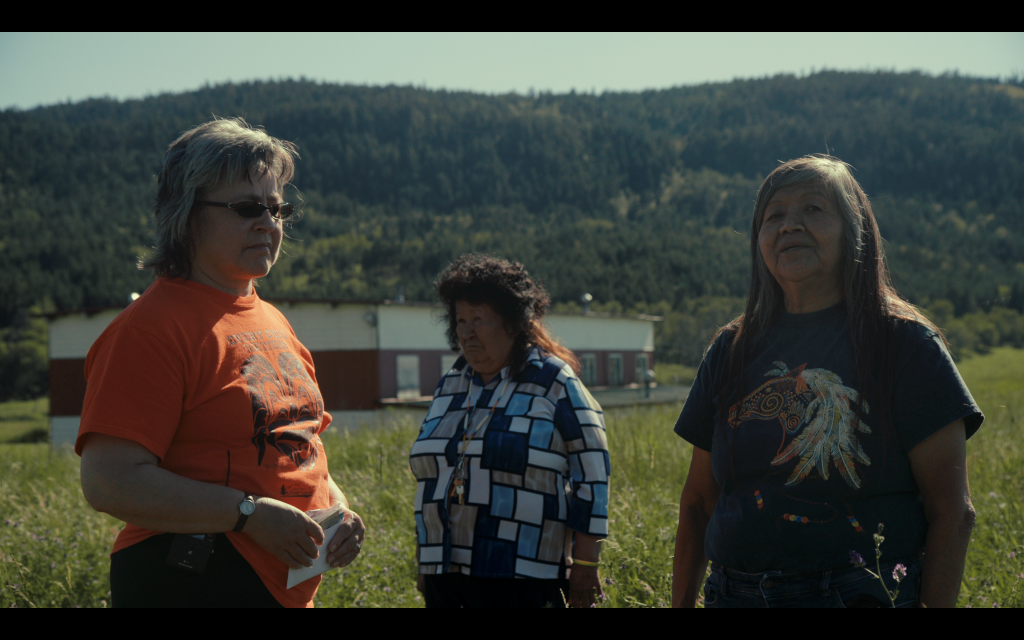
The stars aligned to reunite Stiller and Jack-Webstad for something powerful. Oftentimes, tough subject matter like this is best seen through an Indigenous lens, which is what is happening here. Stiller’s weaving of the stories is delicately balanced between the individual and the community. Survivors, including Jack-Webstad, are able to tell their stories on their own terms while their boundaries are respected.
“Part of it was just understanding. We had that one shoot day where we went out to St. Joseph’s Mission. I knew that we could go there only one time on this production. I know that whenever Phyllis goes, she gets really upset afterwards and needs like a week to recover,” explained Stiller. “Same with her family. When you’re in a relationship with people, you just know each other and you’re able to protect one another.”
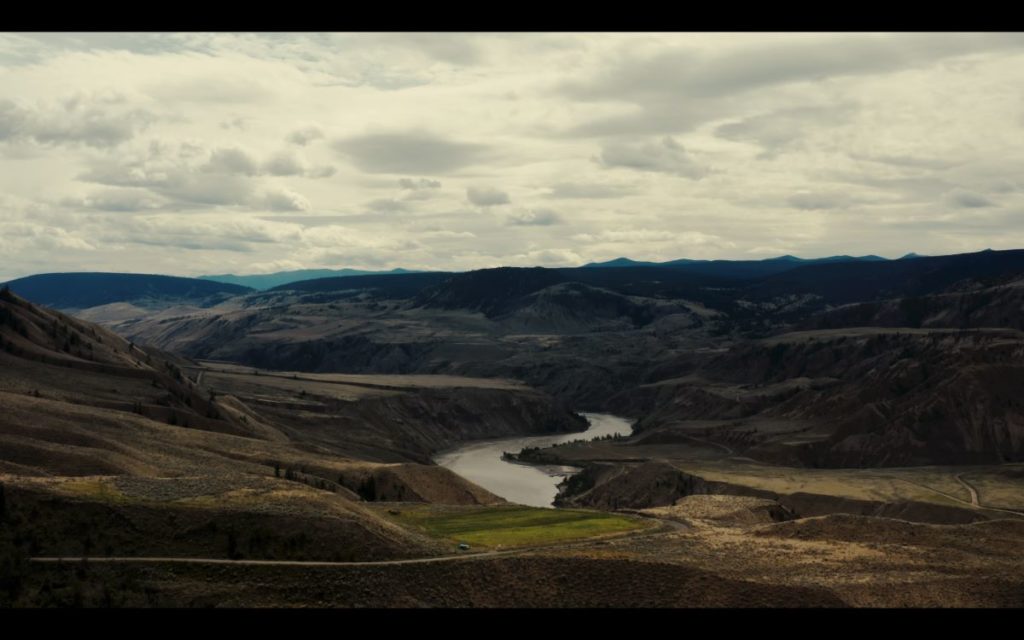
Returning Home examines the emotional and spiritual connection between the health and well-being of the Secwepemc communities and the wild salmon population. A common notion amongst Indigenous communities is that the amount of violence that the Earth faces is directly correlated to the violence Indigenous people face. When Indigenous people were being displaced and cordoned off on reserves, the health of the salmon population suffered. There was a call to action from one of Phyllis’ family members for society to start listening to Indigenous people for their vast and intimate knowledge about how to live on land and water, and follow the teachings of the seven-generations rule.
Everything is connected. Stiller succeeds artistically and factually in helping us to understand the relationship and emotional connection Indigenous people have to the land. If people can start letting go of their limiting western and colonial beliefs and begin to understand Indigenous worldviews, then we can take the first steps in starting to heal the damage that colonialism has done to the land.




